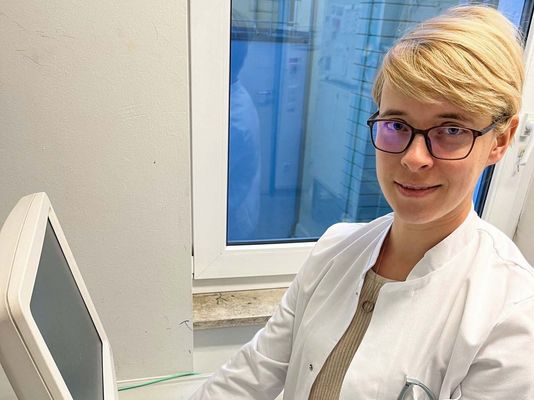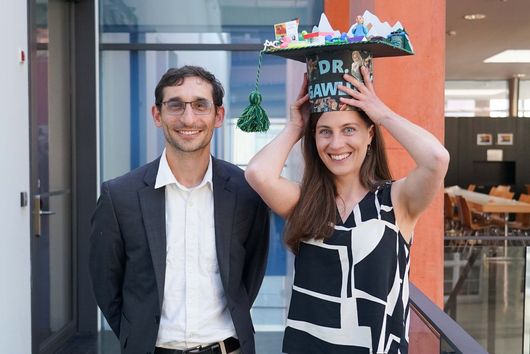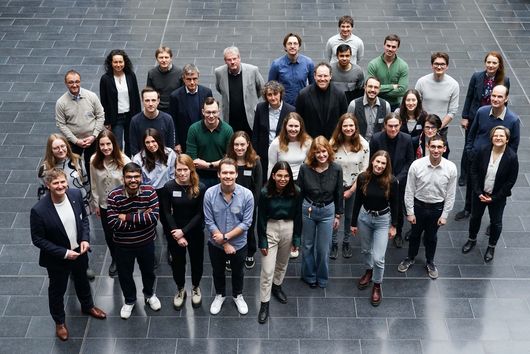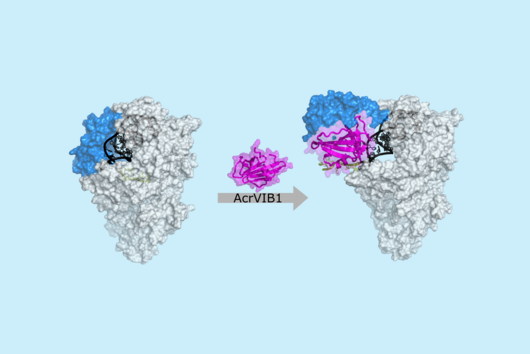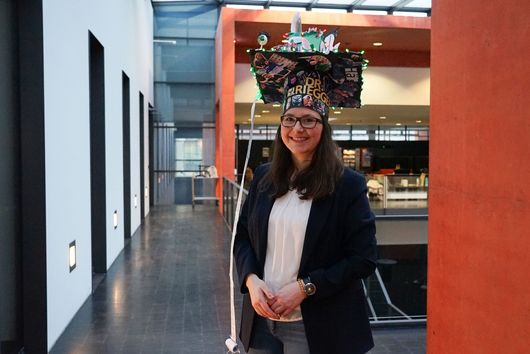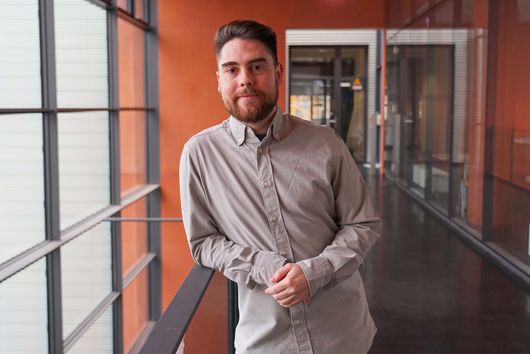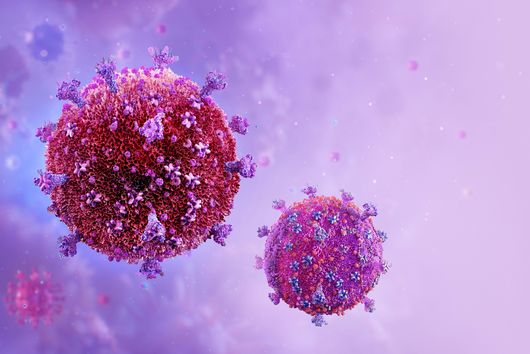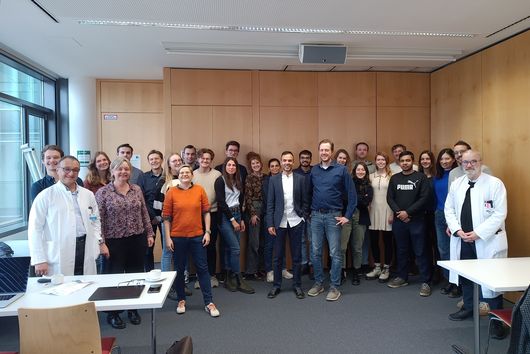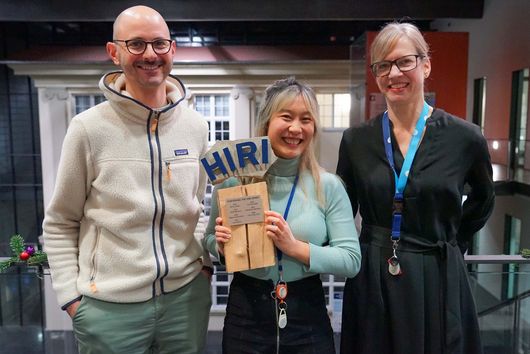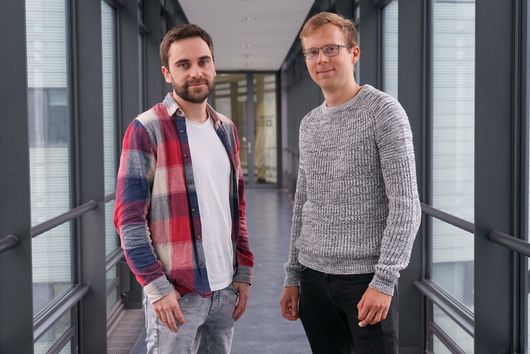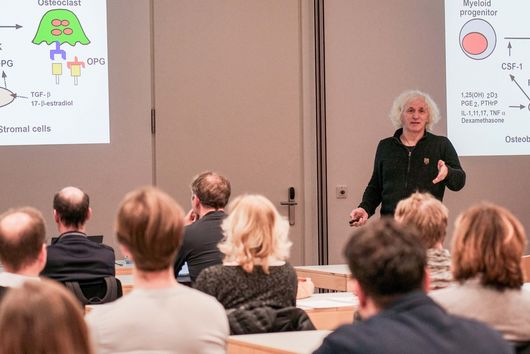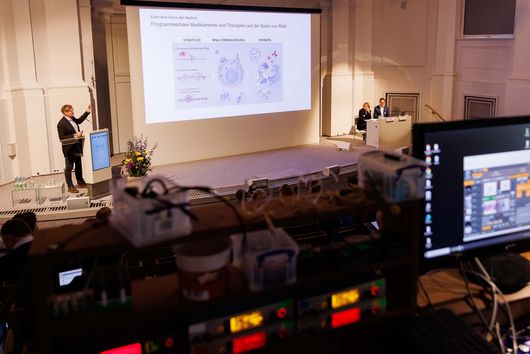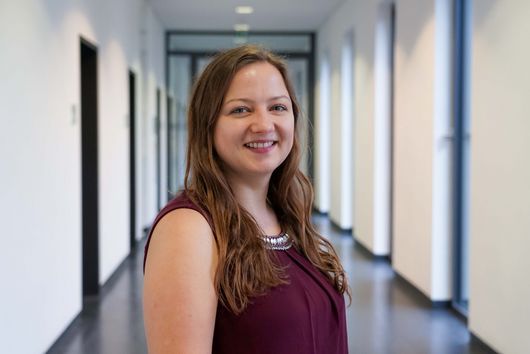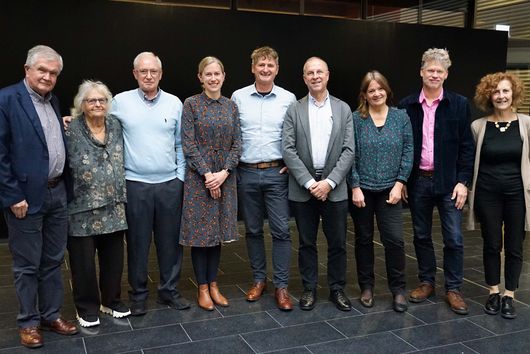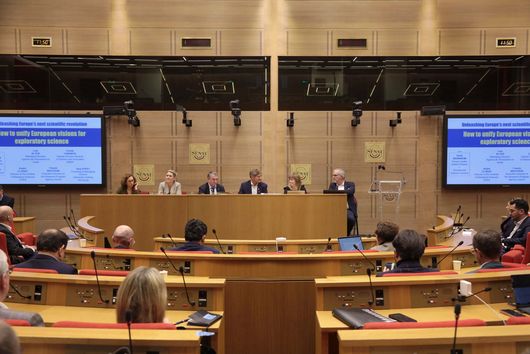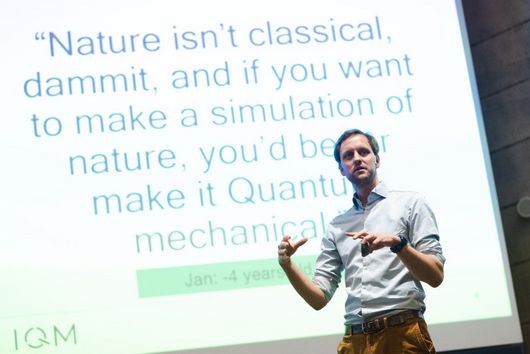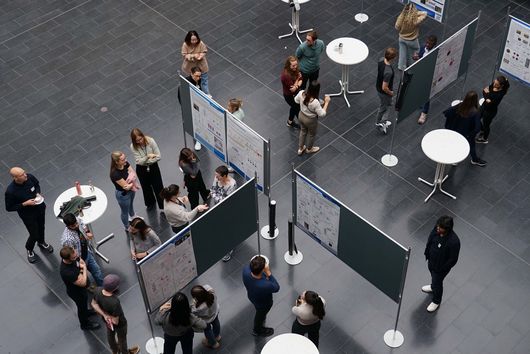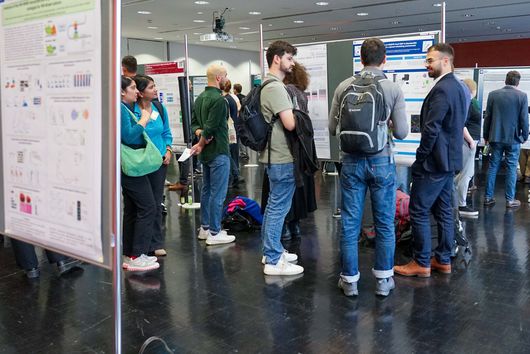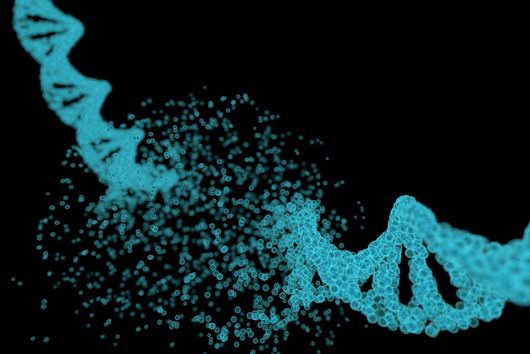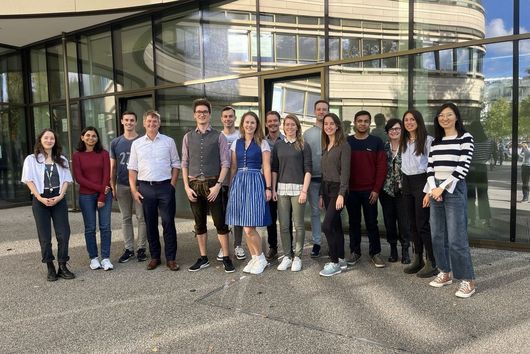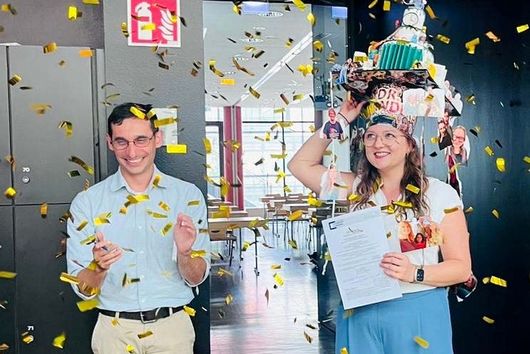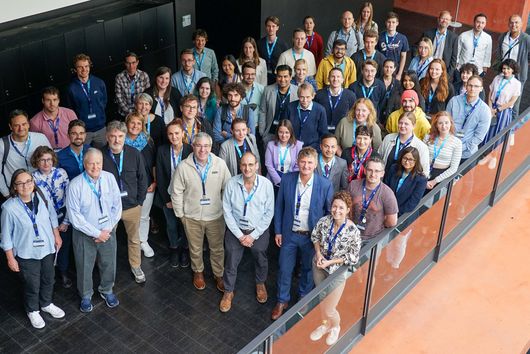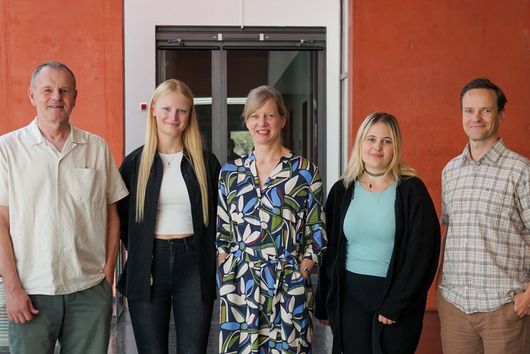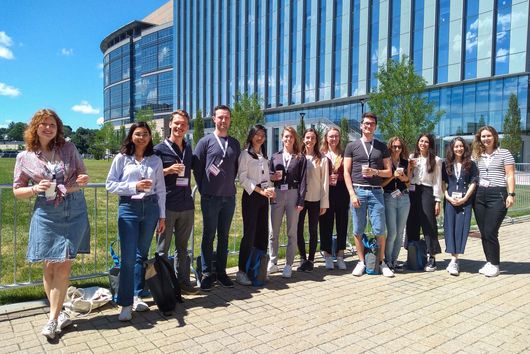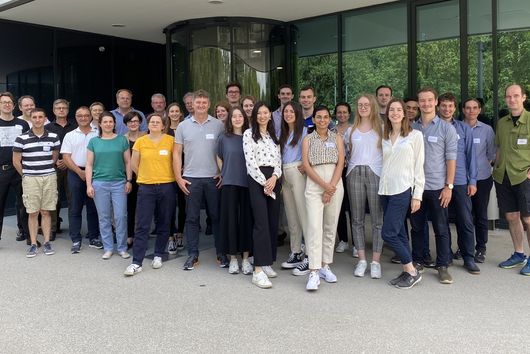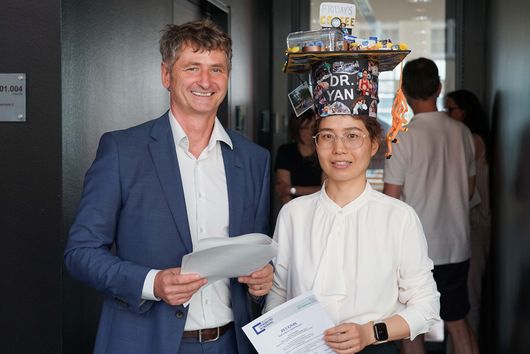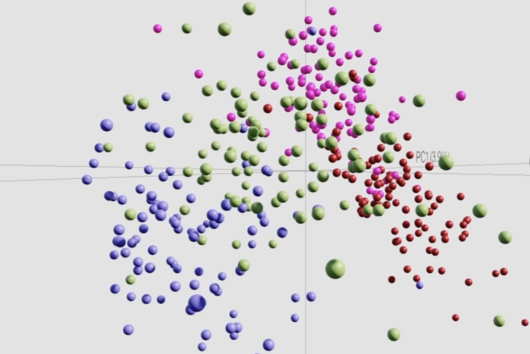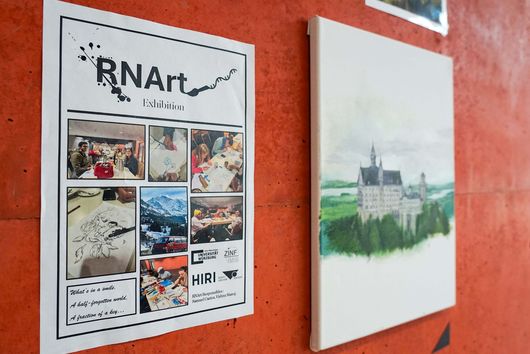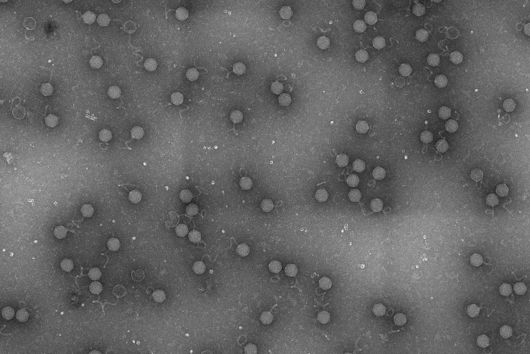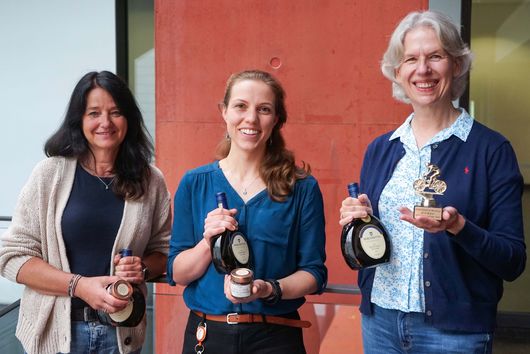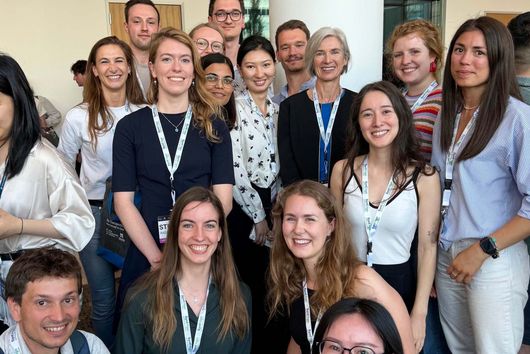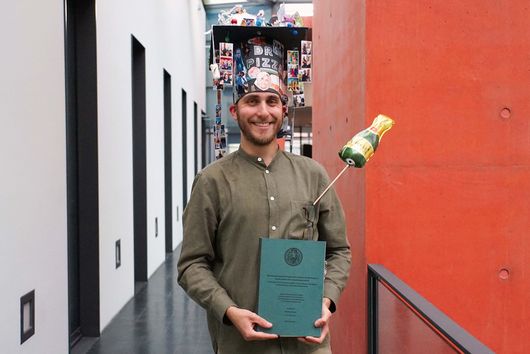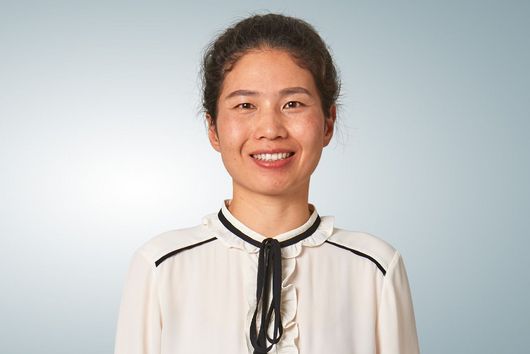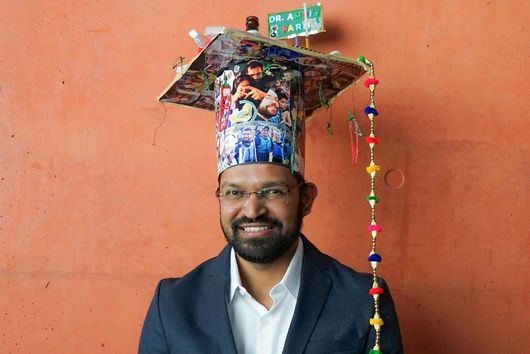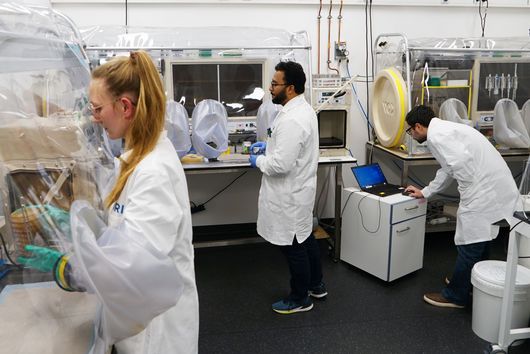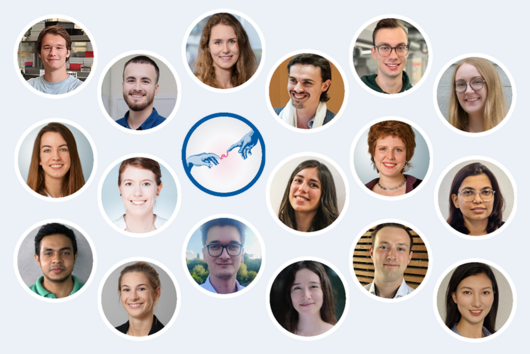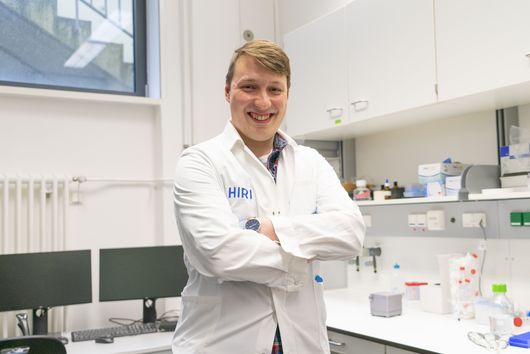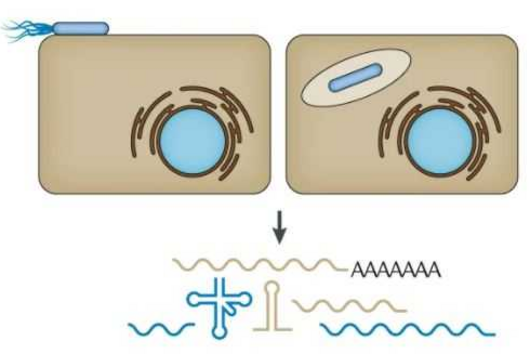
Decoding herpes infections
Antje Appelt-Menzel studies herpes simplex virus 1
Herpes simplex virus 1 (HSV-1) is a virus that infects the human nervous system. Depending on the site of infection, it causes cold sores, but also ocular diseases that can lead to blindness. In the central nervous system, infection leads to severe herpes simplex encephalitis (HSE) with high mortality if left untreated. Even with treatment, HSV-1 survivors experience cognitive impairment and learning disabilities. In addition to transportation along nerve fibers, the virus is also able to cross the blood-brain barrier. However, the exact mechanisms of infection progression are still unclear.
In her project at the Single-Cell Center Würzburg, Dr Antje Appelt-Menzel from the Chair of Tissue Engineering and Regenerative Medicine (TERM) at the University Hospital of Würzburg aims to identify cellular factors leading to cerebral infection and how the blood-brain barrier endothelium can be protected from infection. The research results of the project, in which Prof Eleni Koutsilieri and Prof Carsten Scheller from the Institute for Virology and Immunobiology of the University of Würzburg are also involved, could form the basis to develop new therapeutic approaches for HSE patients.
About the Single-Cell Center Würzburg
The Single-Cell Center Würzburg is a joint competence center of the Helmholtz Institute for RNA-based Infection Research (HIRI) with the Faculty of Medicine of the Julius-Maximilians-Universität (JMU), the University Hospital Würzburg (UKW), the Fraunhofer Translational Center for Regenerative Therapies (TLZ-RT), and the Max Planck Research Group at the Würzburg Institute of Systems Immunology (WüSI).
The center’s objective is to analyze and understand diseases at the level of individual cells. In the future, this will enable the earliest possible and most reliable prediction of a disease and how it can be treated in the best possible way.


